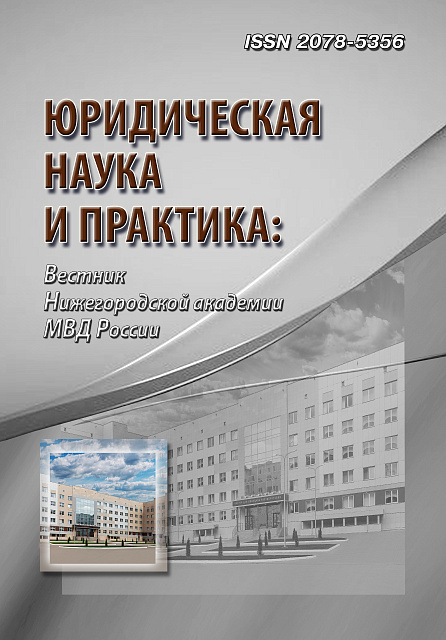Russian Federation
Legal technology undoubtedly plays an important role in the issue of combating crime, this problem is especially clearly revealed by the example of the activities of law enforcement agencies engaged in combating extremist activities. The terminological omissions existing in this legal field often determine not only the difficulties in qualifying the relevant crimes, but also becomes a tool in the hands of the criminal segment manipulating public legal awareness in order to implement its own radical views and ideas. Thus, a favorable foundation is being formed for the escalation of social tension and the formation of public resonance, the main source of which five years ago was the facts of the realization of the right of citizens to the necessary defense, whereas at present this niche is confidently occupied by radical statements and appeals on the Internet. Overcoming such challenges and threats seems achievable primarily through the unification of relevant legislative provisions, which can increase not only the level of effectiveness of specific law enforcement activities, but also the level of civil confidence in the domestic justice system. With this in mind, this article actualizes the problems of the concept and place of the phenomenon of “extremism” in the modern socio-legal field.
extremism, counteraction, legislation, terminology, legal awareness, criminal responsibility, law enforcement
1. The Constitution of the Russian Federation: adopted on December 12, 1993 by popular vote (subject to amendments made by the laws of the Russian Federation on Amendments to the Constitution of the Russian Federation no. 6-FKZ of December 30, 2008, no. 7-FKZ of December 30, 2008, no. 2-FKZ of February 5, 2014, no. 11-FKZ of July 21, 2014; with amendments approved during the all-Russian vote of July 1, 2020). Rossiyskaya Gazeta, 2020, July 4. (In Russ.)
2. The Criminal Code of the Russian Federation: federal law no. 63-FZ of June 13, 1996. Rossiyskaya Gazeta, 1996, June 18. (In Russ.)
3. In Kansk, a teenager was given five years in a penal colony for teaching terrorism. RIA Novosti, 2022, February 10. URL: https://ria.ru/20220210/kansk-1772052271.html (accessed 15.07.2023). (In Russ.)
4. Tsvetaev L., Myasumova A. Five years for the “explosion” in Minecraft. The court considered the case of Kansk schoolchildren. Journal.ru, 2022, February. URL: https://www.gazeta.ru/social/2022/02/10/14519263.shtml (accessed 15.07.2023). (In Russ.)
5. Shanghai Convention on Combating Terrorism, Separatism and Extremism. Collection of legislative acts of the RF, 2003, no. 41, art. 3947. (In Russ.)
6. On countering extremist activity: federal law no. 114-FZ of July 25, 2002. Collection of legislative acts of the RF, 2002, no. 30, art. 3031. (In Russ.)













